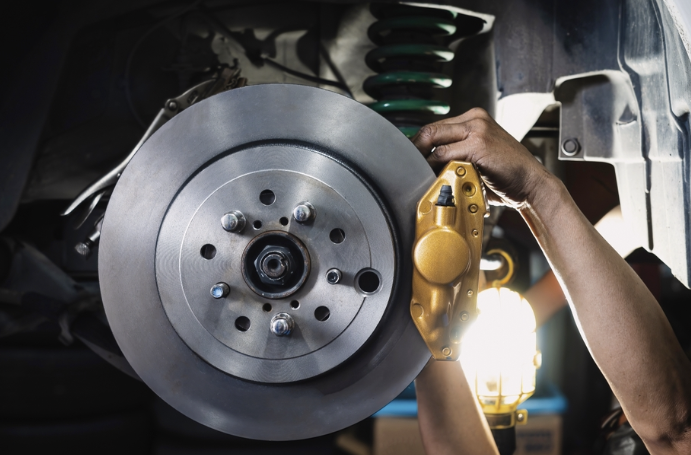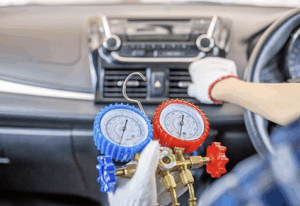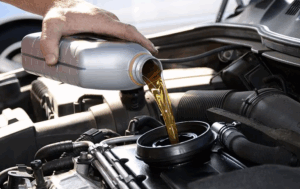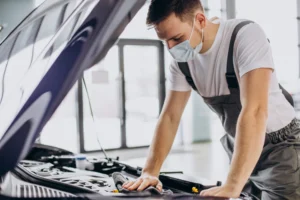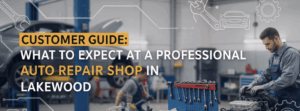When it comes to keeping your car safe and reliable, few systems are as important as your brakes. While many drivers focus on routine oil change services or tire rotations, brake care often gets overlooked until problems arise. However, regular brake service is not only critical for safety but also for the longevity of your vehicle. From smooth performance to preventing costly automotive repairs in Lakewood Co, proper brake care can make all the difference in how long your car stays on the road.
This article explores why regular brake service is essential, how it extends the life of your vehicle, and what benefits it provides beyond just stopping power.
Table of Contents
ToggleWhy Brake Service Matters for Longevity
Brakes endure constant stress every time you drive. Whether it’s slowing for traffic, stopping at a red light, or responding to an emergency, your braking system works harder than almost any other component in your vehicle. Over time, parts such as pads, rotors, calipers, and fluid wear down naturally.
Ignoring these signs of wear can cause damage to other systems, leading to expensive car repair bills. A routine brake service helps identify minor problems early—before they become major issues that compromise performance and shorten your car’s life.
Preventing Wear on Other Vehicle Systems
Regular brake care does more than protect your stopping ability—it safeguards other parts of your car as well.
- Protecting Rotors and Calipers
When brake pads wear down too far, the metal backing plate can grind against the rotor. This not only reduces braking efficiency but can damage the rotor and calipers. A timely brake pad service prevents this unnecessary damage. - Reducing Strain on Suspension and Tires
Faulty brakes often cause uneven stops, leading to premature tire wear and stress on the suspension system. By keeping brakes in top condition, you extend the lifespan of these critical components. - Improving Engine and Drivetrain Efficiency
Sticking or dragging brakes force the engine to work harder to maintain speed, decreasing fuel efficiency. Regular service ensures your brakes release properly, reducing wear on the drivetrain.
The Connection Between Brake Health and Performance
A car’s performance isn’t just measured by how fast it accelerates—it’s also about how safely and smoothly it stops. Regular service ensures:
- Consistent stopping power: Predictable response when you press the pedal.
- Improved handling: Balanced braking prevents pulling to one side.
- Enhanced comfort: Smooth stops reduce vibrations and noise.
When brakes perform at their best, the entire vehicle runs more efficiently, adding years to its life.
Adding Value Through Preventive Maintenance
Preventive care, such as brake inspections and timely repairs, pays for itself by avoiding bigger problems. For example:
- A small investment in replacing pads early can save you from having to replace costly rotors.
- Scheduling a brake inspection free with your trusted shop helps catch leaks, fluid issues, or worn-out components before they cause dangerous failures.
- Combining brake service with other preventive steps, such as regular oil change services, keeps your car’s systems working together in harmony.
By integrating brake care into your maintenance routine, you reduce the frequency and cost of unexpected automotive repairs.
How Often Should You Schedule Brake Service?
The right schedule depends on driving habits, road conditions, and the type of vehicle. However, general guidelines include:
- Brake inspection: Every 10,000–15,000 miles or once a year.
- Brake pad service: Replacement typically every 25,000–70,000 miles.
- Brake fluid flush: Every 2–3 years to prevent corrosion and maintain hydraulic efficiency.
Frequent stop-and-go driving, towing, or hilly terrain may require more frequent checks. Your repair shop can provide tailored recommendations based on your car’s needs.
Professional vs. DIY Brake Service
While some drivers attempt DIY brake work, professional service offers several advantages:
- Accurate diagnostics: Trained mechanics can identify issues beyond visible wear.
- Quality parts and tools: Professionals use parts designed to meet or exceed manufacturer standards.
- Safety assurance: Correct installation ensures your brakes perform as intended in emergencies.
Although DIY may seem cheaper upfront, mistakes can lead to costly car repair jobs or compromised safety. Investing in professional service ensures long-term reliability.
The Role of Trusted Shops in Brake Care
Choosing the right shop for brake service makes all the difference. A trusted repair facility will:
- Offer a brake inspection free as part of routine maintenance.
- Use high-quality parts to maximize durability.
- Provide honest recommendations and transparent pricing.
- Combine brake service with other automotive repairs for a complete maintenance plan.
Building a relationship with a reliable shop also means having experts who understand your car’s history, which helps extend its lifespan even further.
Brake Service and Vehicle Resale Value
A well-maintained brake system not only protects you while driving but also enhances resale value. Prospective buyers often ask about brake health because it directly relates to safety. Documentation of consistent service, including brake pad replacements and fluid checks, makes your car more attractive in the used market.
Integrating Brake Service Into Your Maintenance Plan
To maximize the life of your vehicle, brake service should be part of a comprehensive maintenance routine that also includes oil change services, tire rotations, and inspections. By combining these efforts, you ensure all systems work together efficiently, reducing the risk of major failures and extending the vehicle’s overall lifespan.
Conclusion
The role of regular brake service in extending vehicle life cannot be overstated. By preventing damage to other components, improving performance, and reducing repair costs, brake maintenance protects both your safety and your investment. When combined with other routine care like oil changes, it forms the foundation of a long-lasting, reliable vehicle.
Don’t wait until you hear squeaking or grinding—schedule a brake inspection free at your trusted shop today. Taking action now not only saves money but also ensures your car delivers dependable performance for years to come.
FAQs
- How do I know if I need brake service?
Common signs include squeaking, grinding, vibrations, or longer stopping distances. A brake inspection can confirm the issue. - Can regular brake service really extend my car’s life?
Yes. Well-maintained brakes protect rotors, suspension, tires, and even the drivetrain, reducing costly automotive repairs. - How often should I schedule brake pad service?
Brake pads generally last between 25,000 and 70,000 miles, depending on driving habits and conditions. - Is professional brake service better than DIY?
Absolutely. Professional mechanics ensure precise installation, quality parts, and safety assurance that DIY often cannot match.
5. Can I combine brake service with other maintenance?
Yes. Many shops pair brake care with oil change services or tire rotations for a complete maintenance plan.





